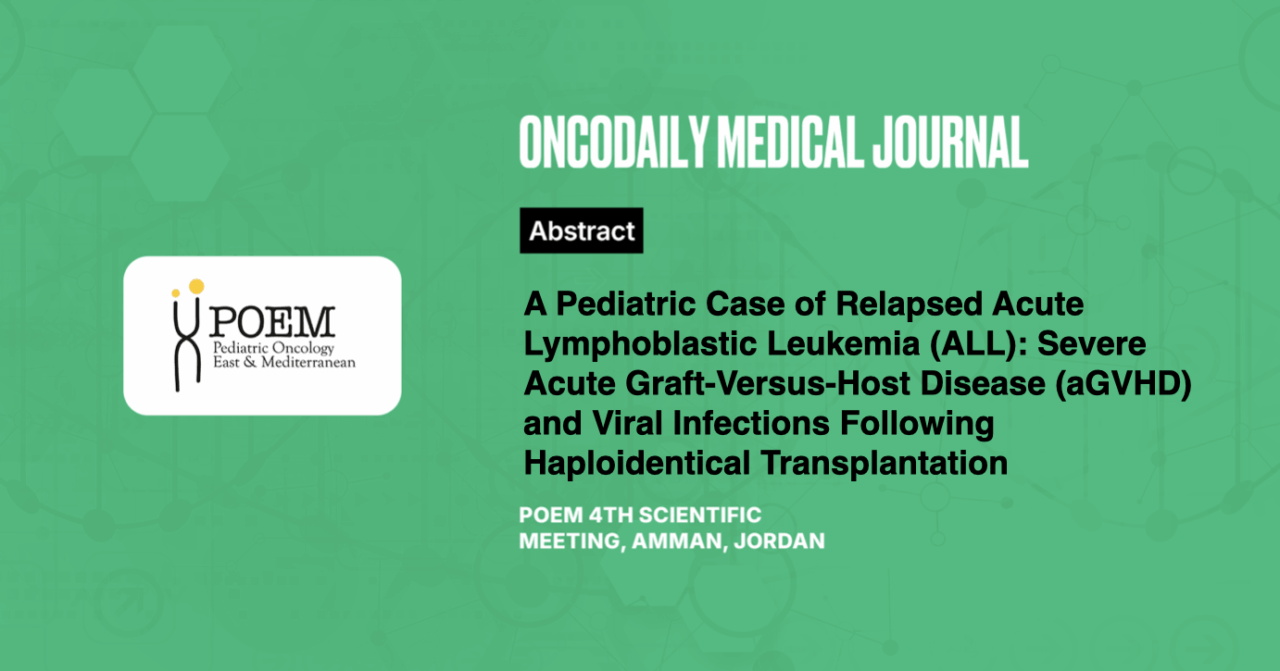A Pediatric Case of Relapsed Acute Lymphoblastic Leukemia (ALL): Severe Acute Graft-Versus-Host Disease (aGVHD) and Viral Infections Following Haploidentical Transplantation
Abstract
Introduction: Haploidentical stem cell transplantation (HSCT) has emerged as a viable option for pediatric patients with relapsed or high-risk Acute Lymphoblastic Leukemia (ALL) who lack a fully matched donor. However, this procedure poses significant risks due to the intensive immunosuppressive therapy required to prevent graft-versus-host disease (GVHD), which also elevates vulnerability to severe viral infections such as cytomegalovirus (CMV) and adenovirus. The study aims to analyze the management of acute GVHD in pediatric patients post-haploidentical HSCT and to examine the complications and progression of viral infections like CMV and adenovirus in this context.
Methodology: This retrospective case study will focus on a pediatric patient, a 10-year-old boy, treated according to the ALL IC BFM 2009 protocol. Following relapse, the patient underwent haploidentical HSCT with conditioning therapy using FLU/TREO/THIO and GVHD prophylaxis with Cyclosporine A (CsA), Mycophenolate Mofetil (MMF), and post-transplant Cyclophosphamide (PTCy). Post-transplant monitoring included assessments for GVHD, minimal residual disease (MRD), chimerism, and viral reactivations.
Data Collection: Data will include: Clinical progression and responses: Monitoring GVHD severity, steroid administration, and additional immunosuppressive needs. Outcome analysis: Evaluation of the patient’s clinical course in response to various treatments and the reasons for treatment failure.
The study aims to identify factors contributing to high morbidity and mortality in pediatric HSCT patients with severe GVHD and viral infections, proposing: Enhanced preventive measures: Implementing stricter infection control protocols and frequent CMV monitoring post-transplant.
Conclusion: This case underscores the urgent need for more comprehensive strategies in managing post-transplant GVHD and infection risk. Improved protocols for viral monitoring and early intervention in pediatric oncology settings may enhance outcomes for high-risk populations undergoing haploidentical HSCT.





